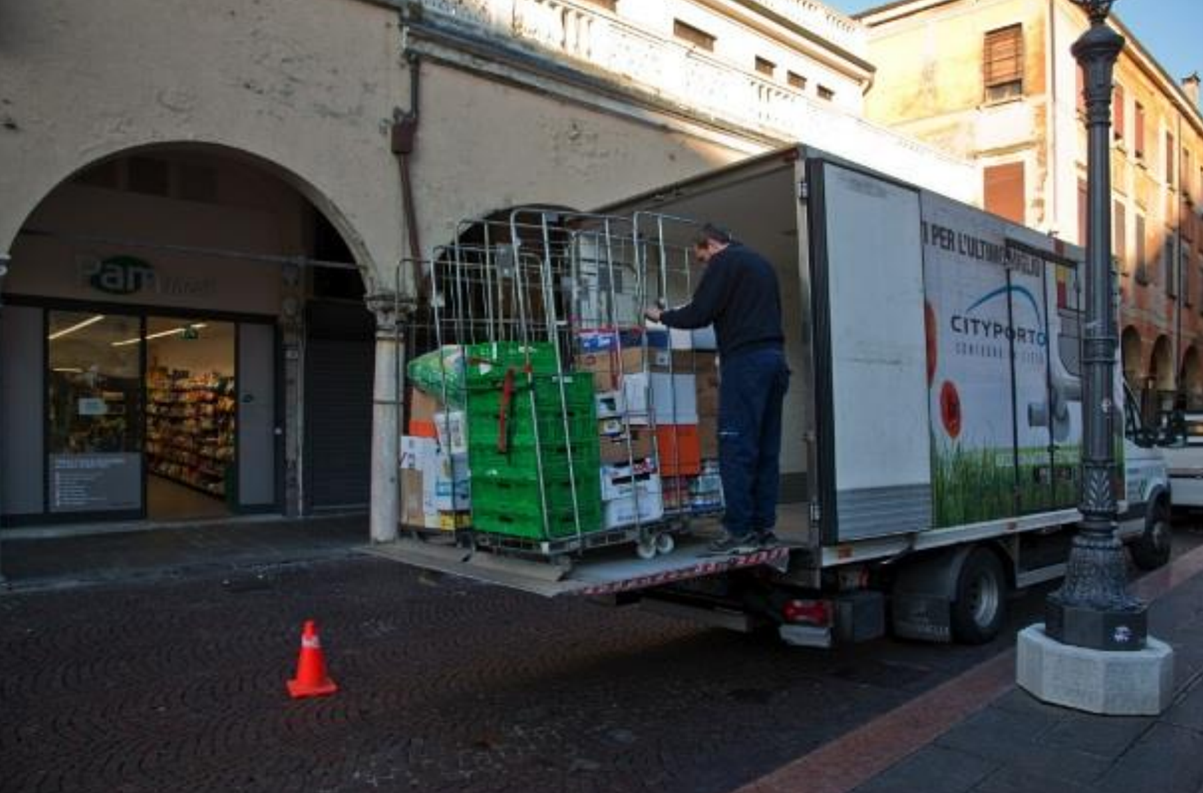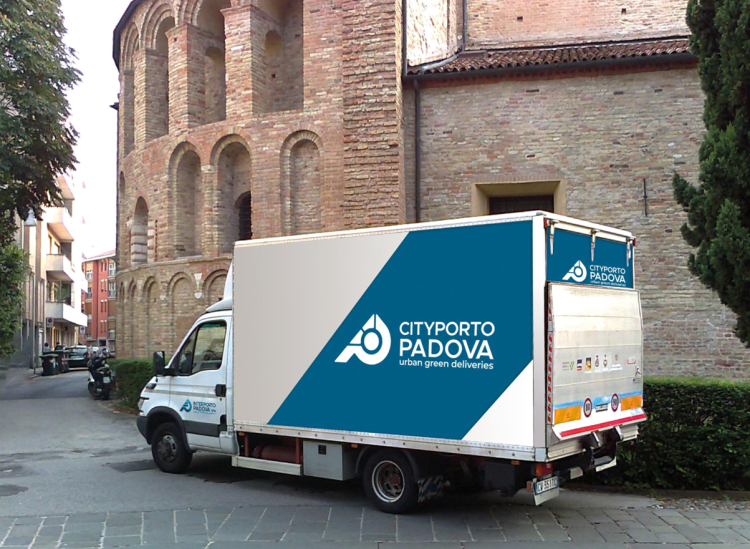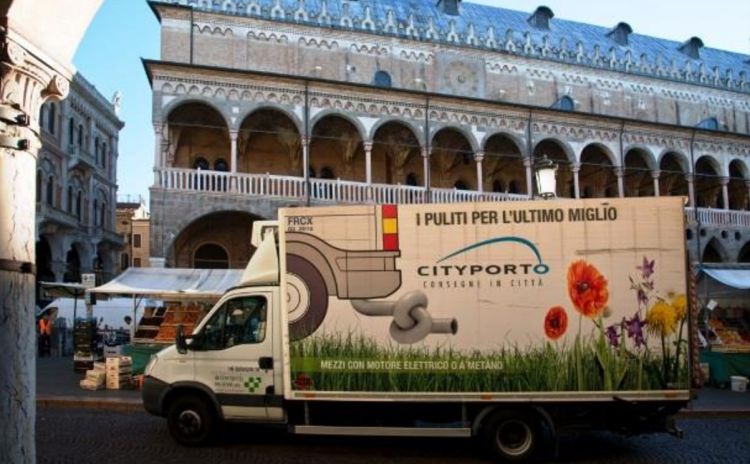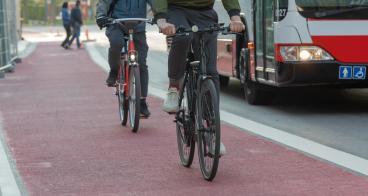Cityporto: Urban distribution service for the city of Padova

The Challenge
Urban city logistics is a pivotal facet of maintaining the daily functioning of a city and ensuring the well-being of its residents. This indispensable activity, however, is not without its challenges, as it often gives rise to negative externalities that include traffic congestion, noise pollution, and compromised air quality. These issues are further exacerbated by the substantial influx of commercial vehicles converging in the city centre. The Italian city of Padova was not an exception, with more than 100 trucks entering the city centre every day.
Various cities have, in the past, grappled with these challenges by introducing innovative solutions. While some of these initiatives demonstrated positive outcomes during their initial piloting and testing phases, the broader implementation and sustainability of these solutions have proven to be formidable hurdles. One recurrent obstacle has been the absence of viable business models, rendering it challenging to scale and adopt these innovative approaches on a larger scale. Unfortunately, many of these solutions falter and cease operations once the initial public funding support ends.
To address these pressing urban challenges, the city of Padova in Italy has taken a proactive stance by implementing a groundbreaking urban delivery service known as Cityporto Padova, which embodies an innovative approach to urban distribution, addressing both immediate city challenges and contributing to broader regional/global logistics efficiency
The Solution
Cityporto, a service dedicated to freight transport operators, designed and managed by Interporto Padova, aims to optimise the delivery flows of goods and enhancing the overall quality of urban life, minimising the number of trips by increasing the loading rates of vehicles and using low emission vehicles. The functions associated with this service encompass urban freight transportation, cross-docking, warehousing, and the management of rejected freight or non-delivery scenarios.
The service follows the Urban Consolidation Centre approach. Therefore, third-party freight operators, as well as own-account transport operators, deliver their goods to the dedicated logistics platform of Interporto Padova, in Corso Stati Uniti, just 2 miles outside the city centre. From this platform, twice a day during the working days, environmentally friendly CNG-fuelled and electric vehicles leave for distribution in the city centre. The vehicles used for the service enjoy two advantages sanctioned by the city of Padova: use of dedicated bus lanes and free access and parking within the limited traffic zone (ZTL). The service is supported by an information system that allows to prepare and track the commands to be delivered, using a barcode system and EDI tools.
Freight operators can voluntarily join the service, with a tariff based on the quantity of goods to be delivered. In 2015 the service was extended to perishable goods, delivering to 5 supermarkets.

Making an impact
CityPorto service has significantly enhanced various aspects of city logistics in Padova and has demonstrated a financially viable business model, operating without public funding since 2007. During its initial 15 months, the service successfully reduced emissions by 33.3 tonnes of CO2 and 41.4 kg of particulate matter PM10. Currently, more than 50 operators participate in the last-mile delivery scheme. Additionally, from 2005 to 2019:
- 1,120,000 deliveries were made in the city.
- each Cityporto van did the same work as 10 vans of individual operators,
- the service resulted in saving approximately 5M km and 140,000 litres of fuel,
- this saving amounts to 1,891 tons of CO2, and 442kg of PM10 fine dust.
Cityporto of Padova serves as a pioneering and successful example of an urban distribution service with low environmental impact, demonstrating the feasibility of sustainable logistics practices and providing a valuable model for other cities in Italy and beyond. Indeed, CityPorto has expanded its services to the neighbouring city of Albano Terme through an agreement with the local municipality.
In 2022, in the framework of the Boostlog project, Padova Cityporto won the ALICE Logistics Innovation award for being one of the few successful experiences of this type in Italy. The model is taken as an example by many other Italian cities and is studied every year by numerous foreign delegations.

Lessons learnt
The service, inaugurated in 2004, remains operational two decades later—an impressive milestone attributed to various contributing factors. The pivotal role of stakeholder involvement, coupled with the support from the City Council, stands out as a key driver. The collaborative effort to establish the CityPorto service brought together entities such as Interporto Padova, the City of Padova, the Commercial Chamber of Padova, A.P.S. Holding A.p.A., and various freight transport operators.
An integral aspect, that was closely linked to stakeholder engagement, was the consideration of the service's financial viability from its conceptualisation and design phases. The stakeholders, signatories to a collaboration agreement, implemented an industrial plan with a strategic focus on economic sustainability.
Furthermore, the pre-existing freight village area of Interporto Padova near the city centre and in close proximity to major highways has played a significant role in its success.






